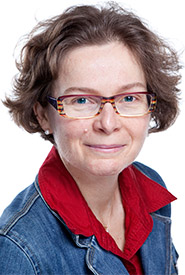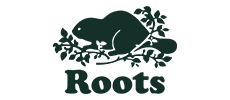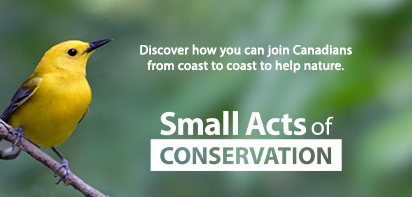Portrait of Marie Larocque, scientific researcher and NCC partner

Marie Larocque (Courtesy of Marie Larocque)
Marie Larocque shares her experience as a scientific researcher, a professor in the Department of Earth and Atmospheric Sciences at UQAM and a Nature Conservancy of Canada (NCC) volunteer and partner since 2006.
Marie, who has a doctorate in hydrogeology, is especially proud of her main accomplishment of the last five years, which is in a field near to her heart: the study and building of knowledge on groundwater systems in Quebec, more particularly hydroecology (the study of fundamental links between water and ecosystems).
Marie was nominated in 2016 for a Prix d'excellence en recherche et création, volet Réalisation from Université du Québec.
As she wished to dedicate even more of her time to scientific research, Marie has chosen to devote part of her sabbatical year to working as a volunteer at NCC.
NCC: How did you find out about NCC?
Marie Larocque (ML): I’ve always been interested in nature protection and conservation. When I was asked to join a group dedicated to coordinating research efforts for Covey Hill, I was immediately sold on the importance of NCC’s actions on the ground. Right away, the way the organization brought people together and the passion of all of its team members appealed to me.
In 2006, we began work with NCC to create a natural laboratory in Covey Hill. This remarkable site is home to at-risk salamanders. It also has an exceptionally well-conserved bog, likely the oldest one known in Quebec.
NCC: You're also a scientific advisor for NCC. What are your responsibilities in this capacity?
ML: One of my responsibilities is to provide support to conservation research. In fact, I have organized a conference with NCC called “Scientific research and the conservation of natural environments: success stories and vision of the future” as part of the 84th Congress of Acfas (Association francophone pour le savoir), held at UQAM on May 10, 2016. With this conference, we wanted to create a discussion group to make the most out of scientific research supporting the preservation of natural spaces.
I am also working with NCC to develop a network of natural laboratories like the one in Covey Hill on other NCC properties.
NCC: How would you describe the Nature Conservancy of Canada to those around you?
ML: The Nature Conservancy of Canada is made up of a team of very qualified people who are highly motivated and driven by an infectious passion for protecting [habitat for] plants and animals. Together, they are doing tremendous work to develop the network of protected land. There is no question that NCC provides positive leadership in Quebec.
NCC: As a researcher, why do you think it is important to protect nature?
ML: Despite living increasingly urban lives, we are still very dependent on nature. We have to produce some of the food we eat on healthy land and drink clean water. For this to be possible, we have to protect agricultural land, rivers and streams, in order to ensure the integrity of the whole landscape.
Nature is also an important way for us to ground ourselves and become aware of our fundamental values. Whether in the city or the country, dynamic and healthy natural environments are essential to restoring this contact.
NCC: What legacy would you like to pass on?
ML: As a university researcher and a hydrogeologist, I want to contribute to a better understanding of the close interactions between water and the natural environments that depend on it. My involvement with NCC allows me to offer my expertise to a competent and passionate team. In this way, I hope to help influence the development of conservation approaches based on science.




